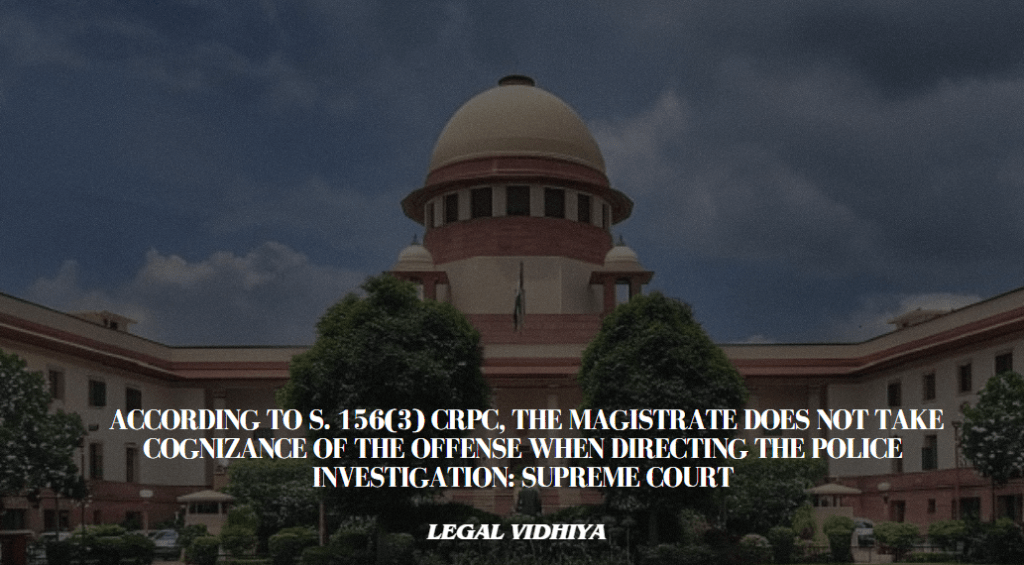
Generally speaking, accepting cognizance means admitting that an offense has been committed. A magistrate is said to take cognizance when he sends an accused person for trial after taking into account an offense that was committed before the current offense, even though there is no formal legal process involved.
Section 190 of the Criminal Procedure Code, 1973 (CrPC) addresses the magistrate’s authority to take cognizance of an offense.
Recently, the Supreme Court issued a recurrent ruling regarding the offense’s recognition, ruling that the SC cannot recognize the offense while the police are conducting their investigation.
Under Sections 156(3) and 200 of the Cr. P.C., the court assessed the magistrate’s authority in the case of “Devarapalli Lakshminarayana Reddy And Others Versus V. Narayana Reddy And Others” (1976) 3 SCC 252, reaching the following conclusion: “It is well established that a magistrate is not required to take cognizance when he receives a complaint if the facts alleged in the complaint reveal the commission of an offence. This is clear from the use of the phrase “may take cognizance,” which in this particular context cannot be equated with “must take cognizance.” In this instance, the word “may” gives the magistrate discretion. If, after reviewing the allegations, he decides that they reveal a cognizable offence, he will be justified in choosing to forward the complaint to the police for investigation under Section 156(3) as an alternative to taking personal cognizance of the offence. This will also save the magistrate time by avoiding the needless investigation of an issue that was essentially the police’s domain.
The Magistrate’s exercise of judicial discretion in ordering an investigation under Section 156(3) of the Cr. P.C. makes it clear that he cannot be considered to have taken cognizance of any offense, given the foregoing. Only when, after careful consideration, the Magistrate chooses to apply Section 200 in accordance with Chapter XV of the Cr.P.C. can it be said that he has taken cognizance of the offence.
Following the order of the Trial Court, the Court in this case examined the complaint, the documents that supported it, and the arguments made by the complainant, also known as the appellant. The Court exercised its judicial discretion to order an investigation in accordance with Section 156(3) of the Criminal Procedure Code after determining that there was enough evidence to support the case. The High Court had no jurisdiction to interfere with the order in question because it was just, lawful, and proper—especially when exercising its limited authority under Section 482 of Cr. P.C. 11. Given the situation, the Trial Court’s decision from June 30, 2023, is upheld, and the High Court’s contested order is reversed.
Case title: M/S SAS INFRATECH PVT. LTD. VERSUS THE STATE OF TELANGANA & ANR.
Name:Gurleen kaur , bba llb ( 6th sem ) , st. soldier law college , intern under legal vidhiya
Disclaimer: The materials provided herein are intended solely for informational purposes. Accessing or using the site or the materials does not establish an attorney-client relationship. The information presented on this site is not to be construed as legal or professional advice, and it should not be relied upon for such purposes or used as a substitute for advice from a licensed attorney in your state. Additionally, the viewpoint presented by the author is of a personal nature




0 Comments